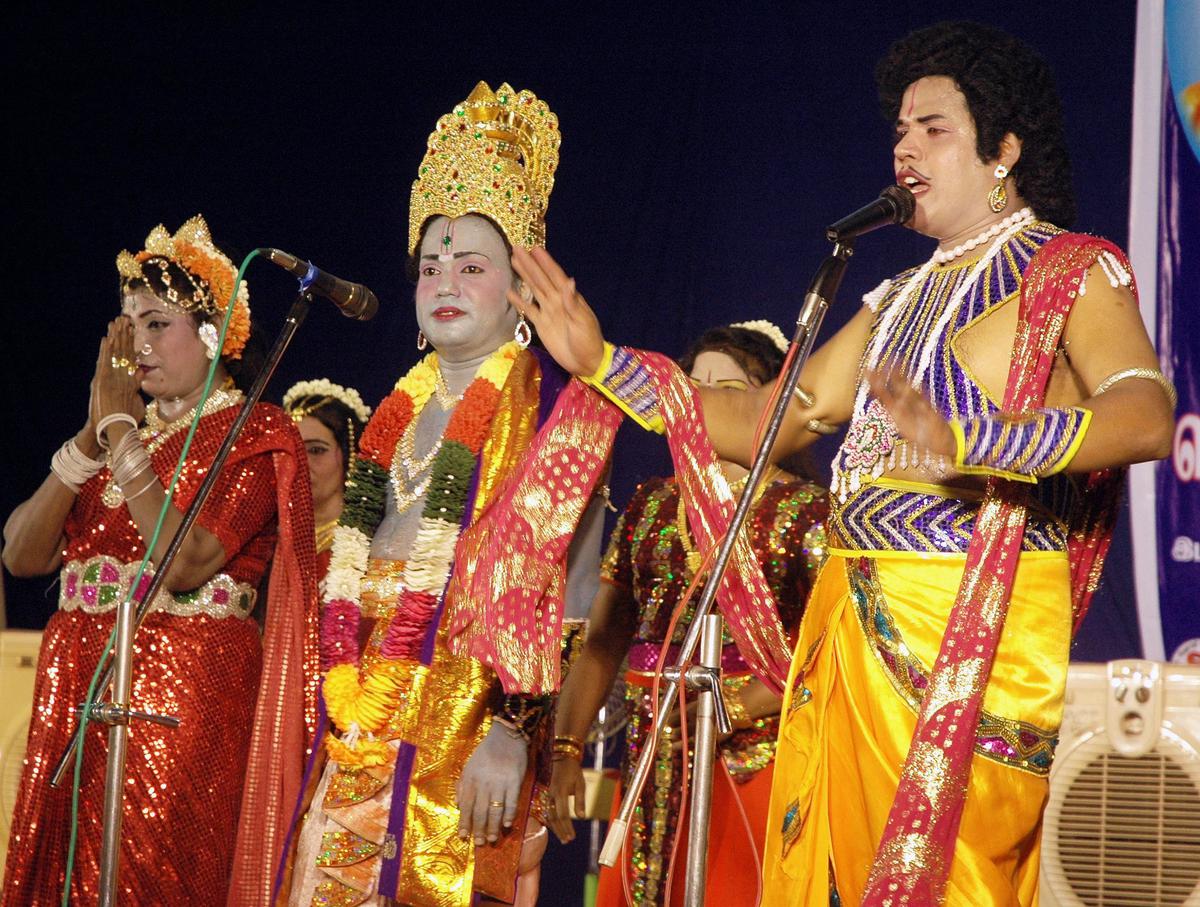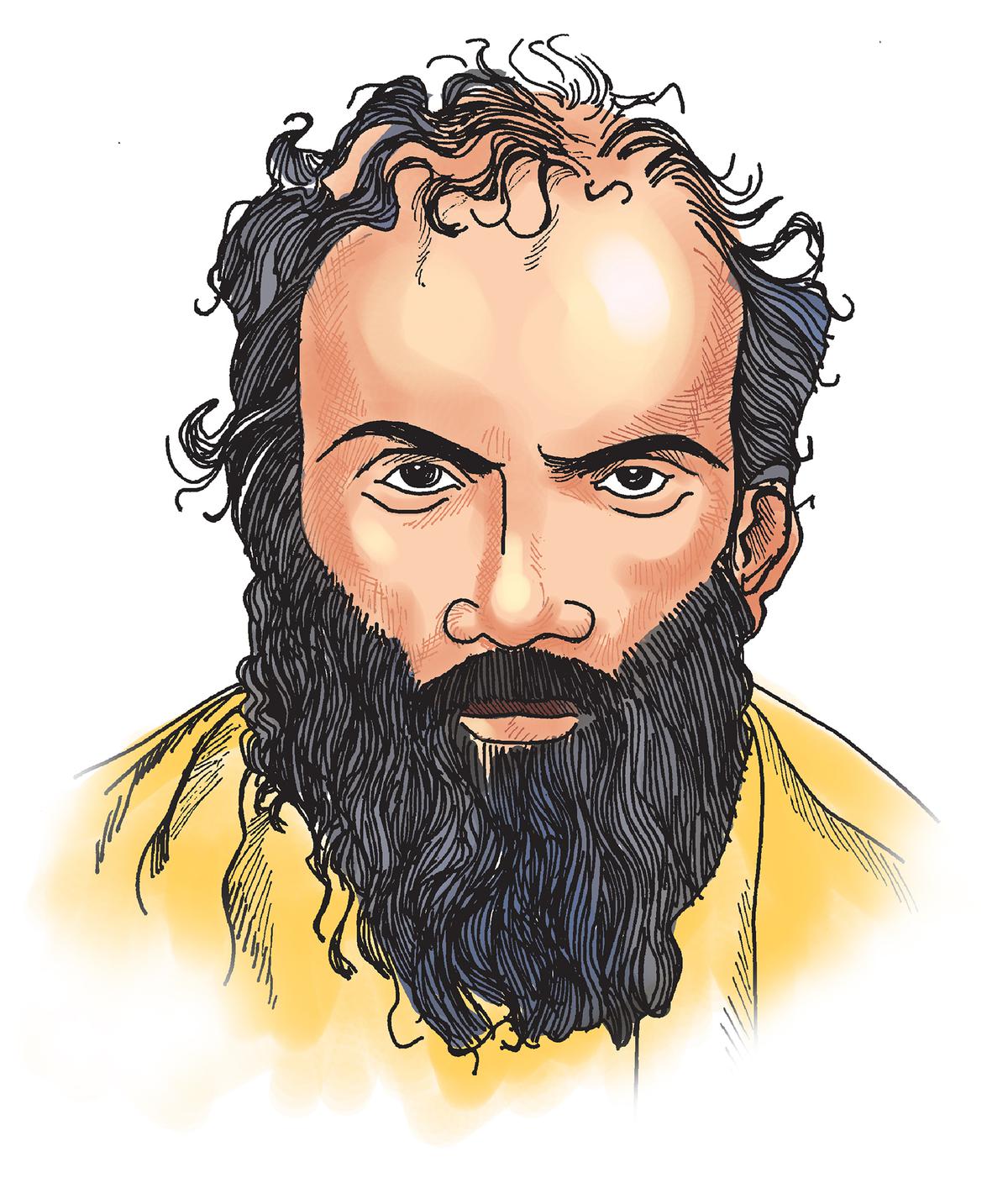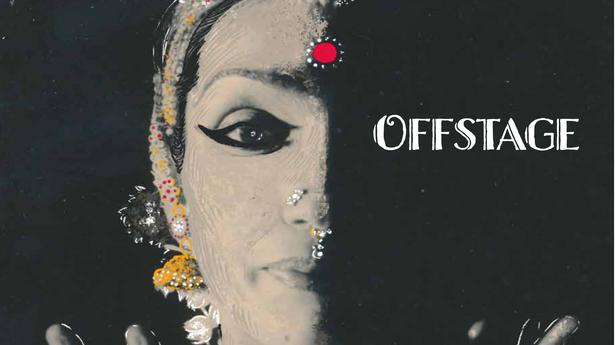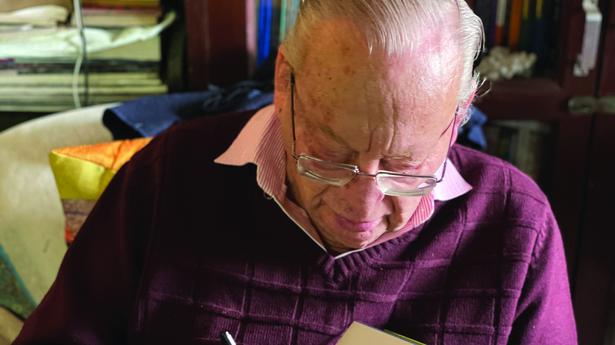Sankaradas Swamigal
| Photo Credit: Sathish Vellinezhi
Sankaradas Swamigal, Pammal K. Sambandha Mudaliar and Paridimar Kalaignar are referred to as the Trinity of Tamil theatre. Each brought about revolutionary changes to revive Tamil theatre and take it to greater heights. November 13 marked the death centenary of Sankaradas Swamigal. Born in 1867 in Tuticorin, he developed a keen interest in Tamil at an early age, thanks to his father Damodaran Pillai, who was known for his proficiency in the language. He later mastered its nuances under the guidance of scholar Palani Dandapani Swamigal.
Sankaradas worked as an accountant in a salt factory for a while before entering the world of Tamil theatre. He was then associated with a drama company run by Ramudu Iyer and Kalyanarama Iyer, initially as an actor and later, as a playwright. Thus began a journey spanning more than three decades, one that would see him script almost 50 plays. Most of his works formed the corpus of the Special Drama repertoire, which refers to a form of theatre where actors from various places are hired ‘specially’ for a performance. They meet just before the show and go on stage with minimal rehearsal, as each of them is familiar with the standardised dialogues and songs of the play. Sankaradas Swamigal mentored several artistes through his Boys Company (where boys are trained in theatre in the gurukula system) Tattva Meenalochani Vidwat Bala Sabha. Among his disciples were Nawab Rajamanickam, T.K. Shanmugam, M.R. Radha, K. Sarangapani and S.G. Kittappa, who went on to become legends in the world of Tamil theatre.

‘Pavalakodi’ a play written by Sankaradas Swamigal being performed at the Mupperum Vizha in Madurai on July 22, 2008.
| Photo Credit:
MOORTHY G
Disciplinarian
In his memoirs Enadhu Nataka Vaazhkkai, Shanmugam writes that he and his brothers came under the tutelage of Sankaradas in 1918. Shanmugam seems to have been dearest to Sankaradas, who wrote ‘Abhimanyu Sundari’ keeping him in mind for the role of the protagonist. Remarkably, the play, which ran to nearly four hours was written entirely over one night. Shanmugam also says that Sankaradas was a stickler for discipline. He never composed songs in praise of zamindars or wealthy individuals to gain their patronage.
In 1921, Sankaradas fell ill just as the members of his drama company were leaving for Madras for a series of performances. However, the tour went on as per schedule. His speech and mobility were affected because of paralysis. He was taken to Madras for treatment. He still attended performances and watched them from the wings. Though he could not speak, he was alert and through gestures would often admonish actors who forgot their lines. Sankaradas Swamigal spent his last days in Pondicherry, where he passed away on the night of November 13.
As Shanmugam went on to become one of the legends of Tamil theatre, he never forgot the role of his mentor in his journey. In 1955, he authored a short biography of the playwright titled, Tamizh Nataka Thalaimai Asiriyar. With the support of colleagues such as S.V. Sahasranamam and T.N. Sivathanu, he started the Sankaradas Swamigal Ninaivu Mandram and organised lectures and several events to promote theatre. In September 1967 the Mandram celebrated the birth centenary of Sankaradas Swamigal. A statue of the playwright was unveiled at the historic Tamukkam grounds in Madurai. A memorial was also built at the Karuvadikuppam cemetery in Pondicherry, where his last rites were performed. The Mandram is now run by Shanmugam’s sons, T.K.S Kalaivanan and T.K.S Pugazhendhi and honours artistes every year.
Organisations such as the Tamil Nadu Nadaga Nadigar Sangam in Madurai continue to perform ‘Special Dramas’ across South India in memory of the legend.
His ten best
Sathyavaan Savithri
Pavalakodi Charithram
Valli Thirumanam
Harichandra Mayaana Kaandam
Kovalan Charithram
Rama Ravana Yuddham
Abhimanyu Sundari
Lanka Dahanam
Prabhu Linga Leelai
Seemanthini
The writer is a heritage buff and amateur theatre artiste.






